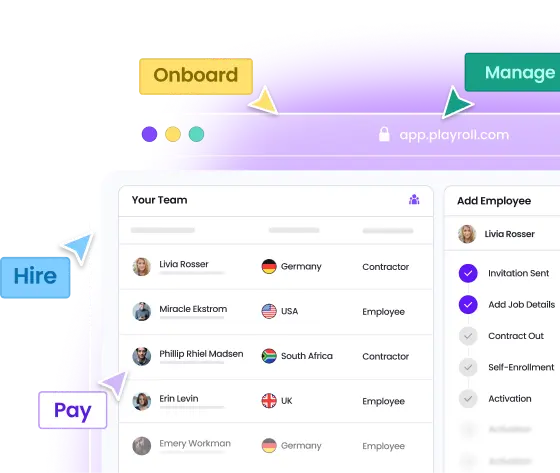What Are the Standard Working Hours In South Korea?
In South Korea, the standard working hours are regulated under the Labor Standards Act (LSA). Employees aged 18 and older are allowed to work up to 8 hours per day and 40 hours per week. For employees under 18, the maximum is 7 hours per day and 35 hours per week. A minimum meal interval of 30 minutes is required for employees working more than 4 hours in a day. Typical working hours are from 9:00 AM to 6:00 PM, Monday through Friday.
Maximum Working Hours in South Korea
The legal cap on working hours in South Korea is 52 hours per week, consisting of 40 regular hours and up to 12 hours of overtime. Overtime can be performed with mutual consent between the employer and employee. However, some industries such as healthcare and transportation have different regulations that may allow for extended working hours.
Industry Specific Exceptions
Certain industries in South Korea have specific working hour regulations:
- Healthcare: Medical professionals may be required to work beyond the standard limits due to the nature of their jobs.
- Transportation: Employees in the transportation sector may also have extended hours to meet operational demands.
These industry-specific regulations differ from the standard working hours and are subject to specific labor agreements and regulations.
Managerial and Exempt Employees
Managerial and exempt employees, often referred to as "executives," are typically not subject to the standard working hour regulations under the Labor Standards Act. These employees tend to have more flexible working hours and may not receive overtime compensation, though this can vary based on the specific duties and responsibilities outlined in their employment contracts.
Statutory Full-Time Working Hours in South Korea
Full-time employment in South Korea is legally defined as working up to 40 hours per week. This standard applies across various industries and roles to ensure consistency in employment practices.
Overtime Regulations in South Korea
What Counts As Overtime in South Korea?
Overtime refers to any work performed beyond the standard 8 hours per day or 40 hours per week. This includes work on weekends or public holidays, provided it is agreed upon by both the employer and employee.
Maximum Overtime in South Korea
The maximum allowable overtime in South Korea is 12 hours per week, bringing the total possible working hours to 52 hours per week. Exceeding this limit is generally not permitted unless specific exceptions apply.
Overtime Payout Rates in South Korea
Hours worked beyond the standard 40 hours per week are categorized as overtime and compensated at 150% of the regular pay rate. Work performed during holidays requires at least 150% of the ordinary wage, with 200% applying to holiday work exceeding 8 hours. Night work (between 10 pm and 6 am) is compensated at an additional 50% of the ordinary wage, effectively making night overtime pay 200% of the regular rate.
Rest Periods and Breaks In South Korea
South Korean labor law mandates the following rest periods to ensure employee well-being:
- During Workday: Employees are entitled to a rest break of at least 30 minutes if working more than 4 hours, and at least 1 hour if working more than 8 hours.
- Between Shifts: A minimum rest period of 11 hours is required between the end of one workday and the start of the next.
These regulations apply across industries, with additional rules for specific age groups, such as minors, who face stricter limitations on working hours and rest periods.
Night Shifts and Weekend Regulations
Night shifts and weekend work are subject to specific regulations:
- Night Shifts: Work performed between 10:00 PM and 6:00 AM is considered night work and requires an additional 50% of the ordinary wage.
- Weekend Work: Weekend work is permitted and may be compensated at a higher rate, depending on the employment contract and industry standards.
Disclaimer
THIS CONTENT IS FOR INFORMATIONAL PURPOSES ONLY AND DOES NOT CONSTITUTE LEGAL OR TAX ADVICE. You should always consult with and rely on your own legal and/or tax advisor(s). Playroll does not provide legal or tax advice. The information is general and not tailored to a specific company or workforce and does not reflect Playroll’s product delivery in any given jurisdiction. Playroll makes no representations or warranties concerning the accuracy, completeness, or timeliness of this information and shall have no liability arising out of or in connection with it, including any loss caused by use of, or reliance on, the information.
.svg)
.svg)
.svg)





.svg)



.png)











.webp)









.svg)